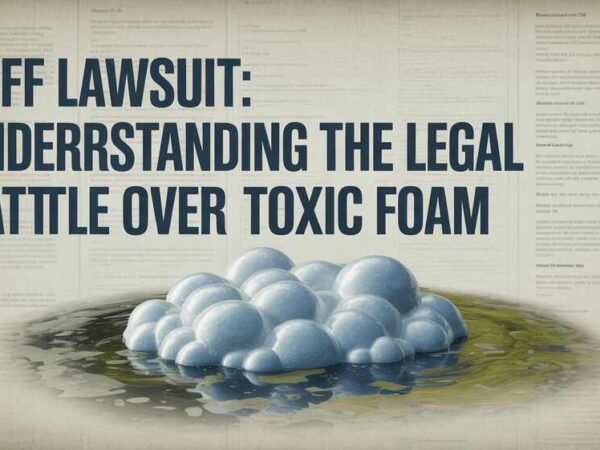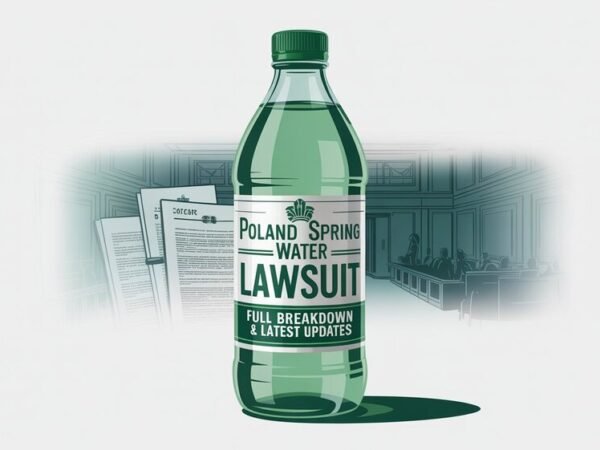Introduction to the Celsius Lawsuit Controversy
Celsius Holdings, the maker of popular energy beverages marketed as fitness drinks, has recently been entangled in a series of legal controversies. Known for its “Live Fit” branding and sold as a healthier alternative to traditional energy drinks, Celsius gained massive popularity among health-conscious consumers, gym-goers, and influencers. However, a growing wave of legal scrutiny has been building behind its popularity. In recent years, multiple lawsuits have emerged, raising serious questions about the company’s marketing tactics, product labeling, celebrity endorsements, and financial disclosures. These developments have caught consumers’ attention and drawn the gaze of regulators and investors, making the Celsius drink lawsuit a headline-grabbing topic in 2025.
2025 Class Action Lawsuits: What Sparked the Legal Firestorm?
The legal challenges facing Celsius began with consumer concerns over misleading advertising. At the heart of these complaints are claims that Celsius falsely marketed its beverages as containing “no preservatives,” despite including citric acid — a known preservative — in its ingredient list. These allegations triggered a wave of class action lawsuits across the U.S., as consumers claimed Celsius’s product labeling misled them.
Public interest in the lawsuits intensified when court filings revealed internal documents that allegedly showed the company was aware of the controversy but failed to take corrective action. In a digital age where transparency and corporate responsibility are more important than ever, Celsius’s response (or lack thereof) fueled widespread criticism and helped the lawsuits gain national traction.
False Advertising Allegations: “No Preservatives” Debate
One of the most high-profile aspects of the Celsius drink lawsuit involves false advertising claims. Plaintiffs argued that Celsius misled consumers by prominently marketing its drinks as having “no preservatives” while including citric acid — which many consider a preservative — in the formula. Though Celsius contended that citric acid was used solely for flavoring, the court sided with consumers, ultimately approving a $7.8 million settlement.
As part of the settlement, Celsius agreed to compensate eligible customers who purchased its drinks during the period. Depending on proof of purchase, consumers could receive payouts ranging from $5 to $250. The settlement also prompted Celsius to revise its labeling practices, removing or altering the “no preservatives” claim on future packaging. This case underscored the importance of accurate labeling in consumer trust and highlighted the legal consequences of ambiguous marketing.
Investor Lawsuit and Securities Fraud Accusations
In addition to consumer-facing legal challenges, Celsius has also been targeted by investor lawsuits. Shareholders have accused the company of securities fraud, claiming that Celsius artificially inflated its stock prices by misrepresenting sales performance, particularly its partnership with beverage giant PepsiCo. These claims allege that Celsius provided misleading projections and omitted key financial risks, leading investors to make decisions based on incomplete or inaccurate data.
The fallout was significant: Celsius stock experienced a sharp decline following the revelations, eroding market confidence. The lawsuits argue that Celsius violated federal securities laws by failing to disclose material information and painting an overly optimistic picture of the company’s financial health. These cases are under review, and a decision is expected later in 2025. If successful, these lawsuits could result in substantial monetary penalties and further regulatory scrutiny.
The Flo Rida Verdict: Celebrity Endorsement Gone Wrong
In a remarkably publicized legal battle, rapper and entertainer Flo Rida (real name: Tramar Dillard) sued Celsius for breach of contract. The lawsuit claimed that Celsius failed to honor equity compensation agreements and bonuses promised as part of his endorsement deal. After a lengthy trial, a jury awarded Flo Rida a staggering $82.6 million in damages, a verdict that shocked many in the business world.
The lawsuit was a cautionary tale about the complexities of celebrity endorsements and the importance of clear, enforceable contracts. It also highlighted the reputational risks brands face when disputes with high-profile partners go public. Celsius has since appealed the decision, but the case’s high-profile nature has already impacted the company’s image and credibility.
Misbranding and FDA Compliance Issues
Another dimension of the Celsius drink lawsuit concerns allegations of misbranding and violations of FDA regulations. Plaintiffs claim that Celsius’s marketing included unverified health claims and failed to meet federal dietary supplement and beverage standards. For instance, “metabolism booster” and “fat burner” have been scrutinized, as regulatory bodies argue that such claims lack sufficient scientific backing.
These misbranding claims could result in fines, product recalls, or stricter regulatory oversight. Celsius has denied any wrongdoing and insists that internal studies support its marketing. However, critics argue that independent validation and FDA approval are essential when making health-related assertions. The outcome of this legal front may set a precedent for the broader wellness and supplement industry.
FTC Crackdown: Influencer Marketing Under Fire
The Federal Trade Commission (FTC) investigated Celsius’s promotional practices in response to social media marketing’s growing influence. Specifically, the FTC examined whether Celsius failed to adequately disclose paid relationships with influencers, potentially misleading consumers into believing endorsements were organic or unbiased.
The investigation found several instances where influencers failed to use required hashtags like #ad or #sponsored, violating FTC guidelines. As a result, Celsius could face significant penalties or be required to update its influencer marketing policies. The broader implication of this crackdown is a heightened focus on transparency in digital marketing, which may also impact other fitness and beverage brands.
SEC Settlement Over Internal Controls
Celsius’s regulatory challenges extended into financial governance when the U.S. Securities and Exchange Commission (SEC) charged the company with failing to maintain adequate internal accounting controls. The SEC alleged that Celsius misclassified various financial transactions and lacked robust oversight of its reporting practices.
Celsius agreed to pay a $3 million settlement to resolve the matter without admitting or denying wrongdoing. While this allowed the company to avoid prolonged litigation, it raised questions about Celsius’s internal auditing and compliance systems. Strengthening these controls will be crucial for rebuilding investor confidence and preventing future violations.
Consumer Trust and Brand Reputation in 2025
The cumulative effect of the Celsius drink lawsuit and its related legal issues has undeniably affected the brand’s public image. While Celsius still enjoys a loyal customer base, many consumers have expressed disappointment over the company’s transparency and ethical standards. Social media has significantly shaped public opinion, with hashtags related to the lawsuits trending during key court dates.
In response, Celsius has launched several PR campaigns aimed at rebuilding trust. These include more transparent labeling, partnerships with third-party labs for ingredient verification, and renewed commitments to ethical marketing. Whether these efforts will restore consumer confidence remains to be seen, but they are essential in crisis management and brand rehabilitation.
Conclusion: What’s Next for Celsius Holdings?
The Celsius drink lawsuit saga illustrates the high stakes of modern brand management in an era of consumer awareness and regulatory vigilance. From false advertising and securities fraud to misbranding and influencer marketing violations, Celsius’s breadth of legal challenges is significant. The company has already paid millions in settlements and faces ongoing scrutiny from regulators, shareholders, and the public.
Looking ahead, Celsius Holdings must prioritize transparency, strengthen its internal controls, and rethink its marketing strategy to avoid future legal pitfalls. While the brand has demonstrated resilience in the face of adversity, its future success will depend heavily on how it navigates these events’ legal and reputational fallout. For consumers, the Celsius drink lawsuit serves as a reminder to scrutinize product claims more carefully, while investors are watching closely for signs of lasting financial and operational reforms.
Do Read: Justin Baldoni Lawsuit – Legal Controversy & Case Breakdown













